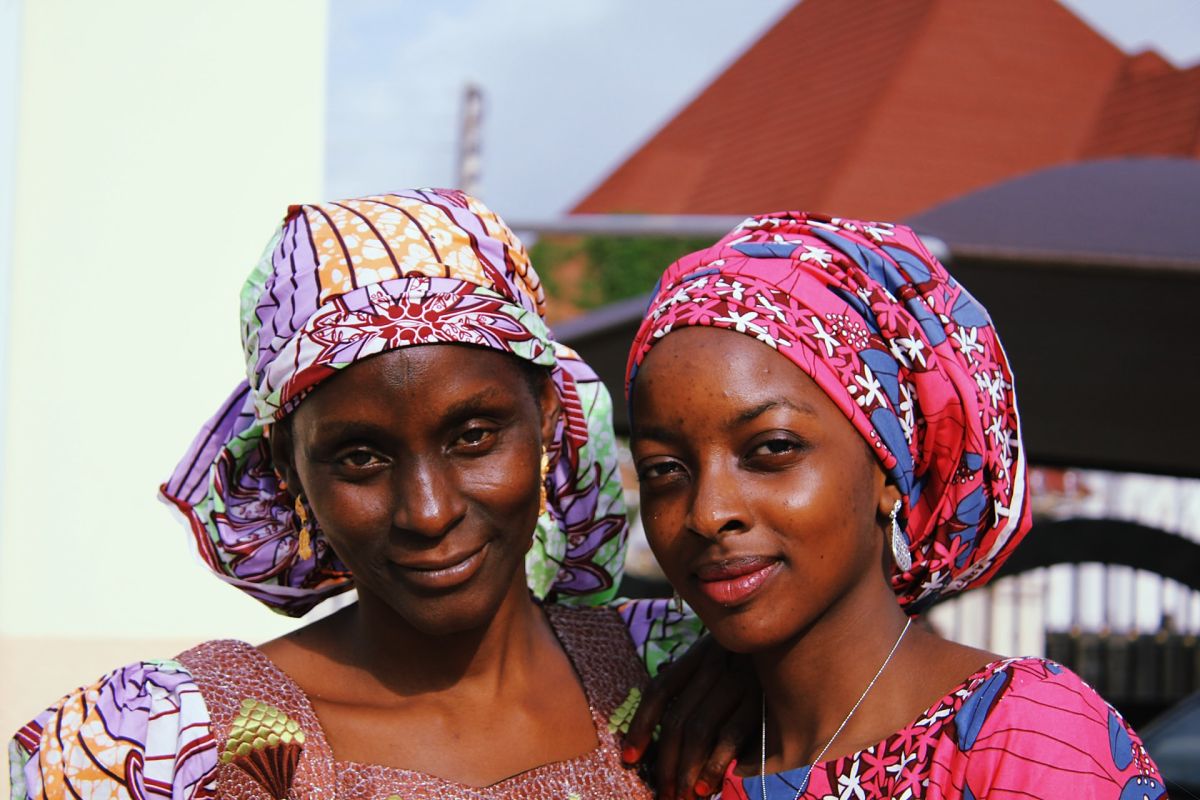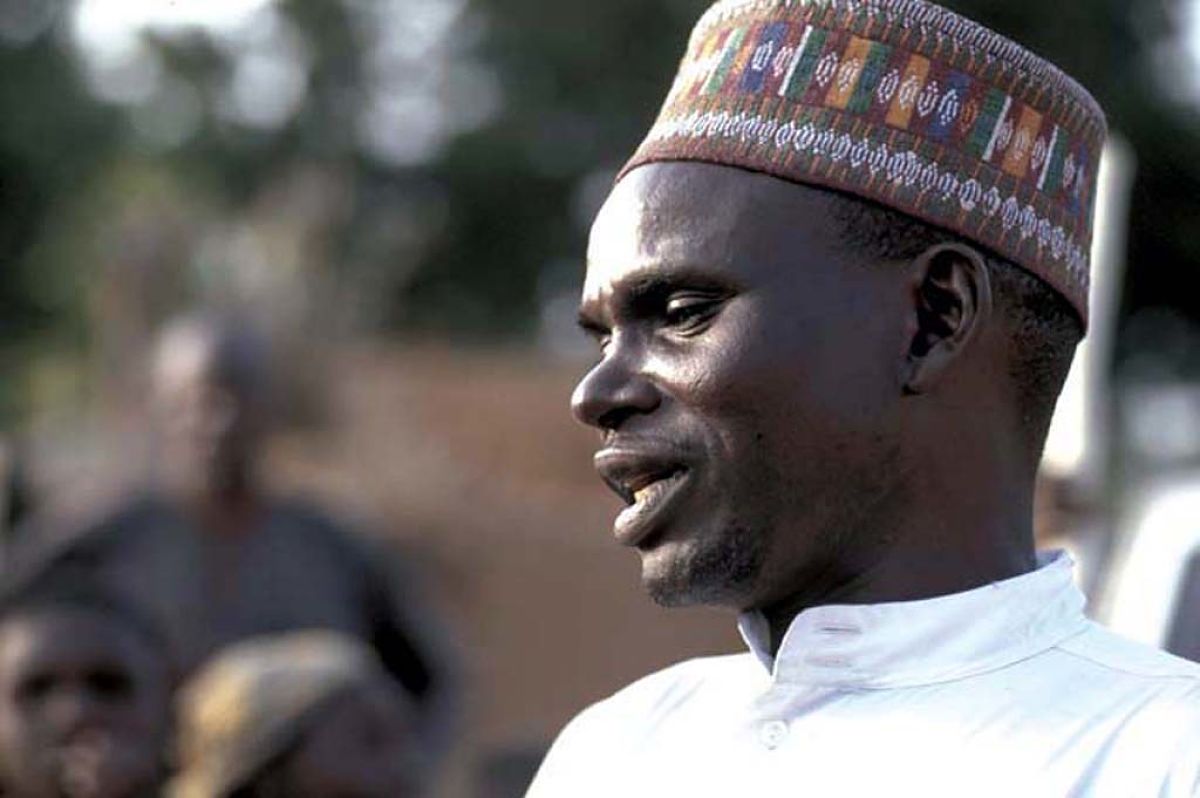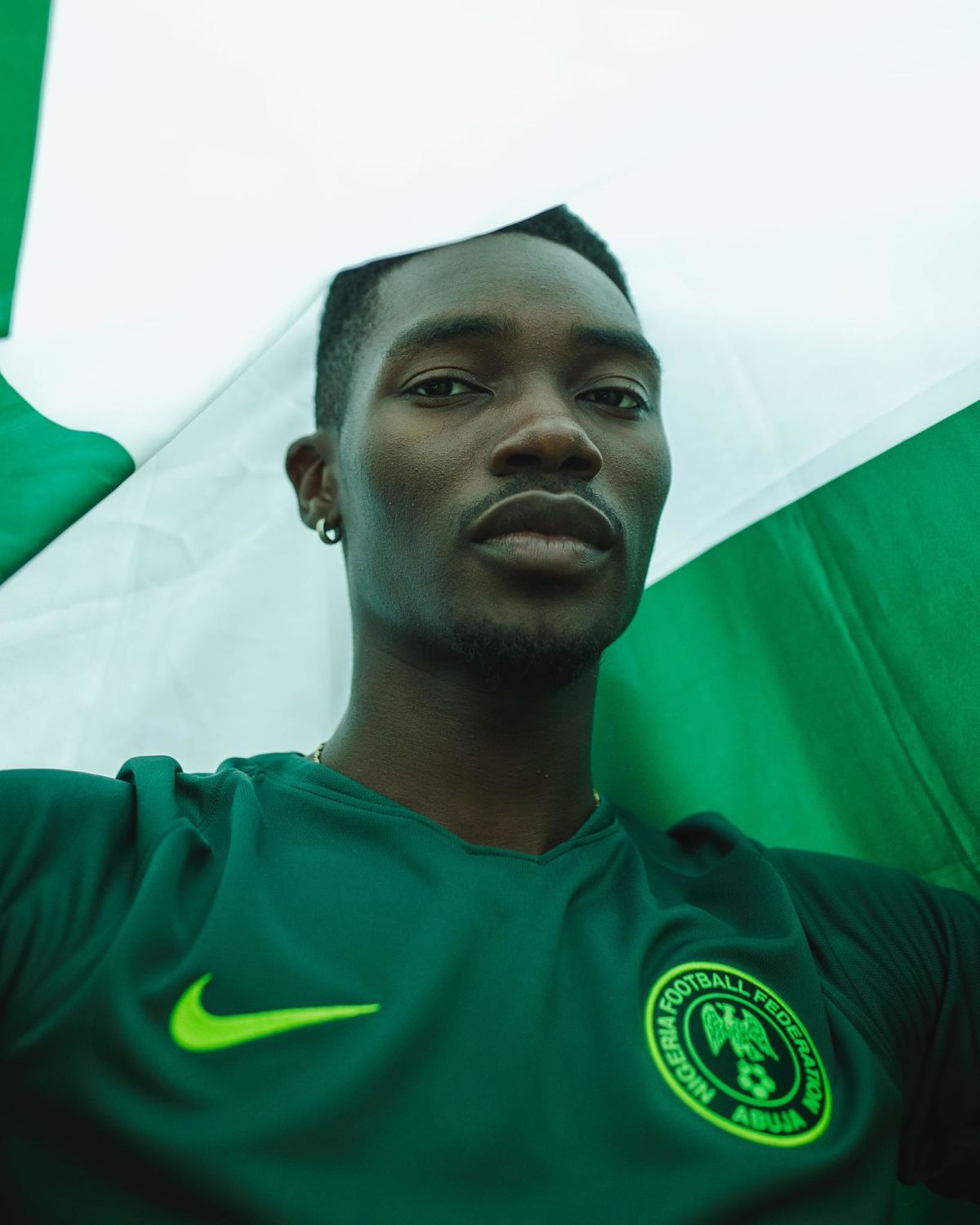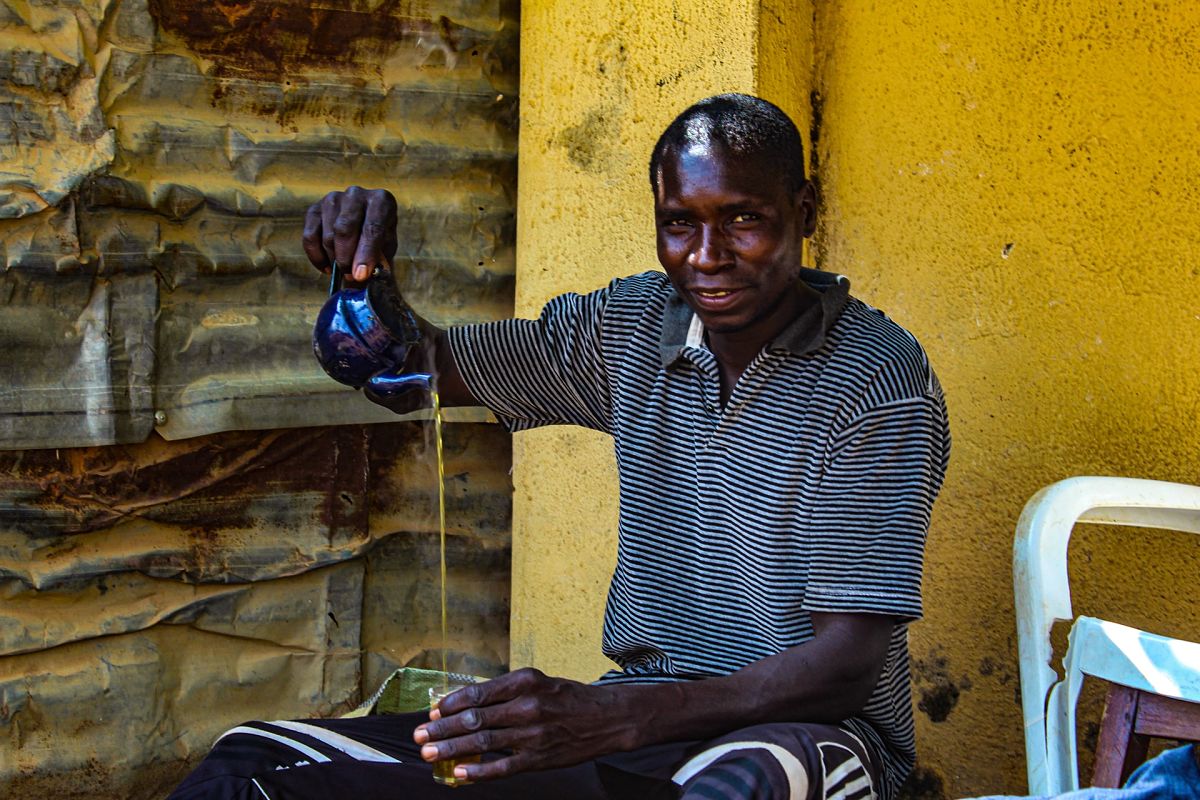what to do business on the continent of africa, learn these etiquette
Nigeria - Civilization, Etiquette and Business Practices
Welcome to our guide to Nigerian culture!
Perfect for anyone wanting to learn a bit more than about the country and its people.

Photograph by Muhammadtaha Ibrahim Ma'aji on Unsplash
What will you lot Learn About Nigeria?
You volition proceeds an understanding of a number of cardinal areas including:
- Linguistic communication
- Faith and beliefs
- Civilisation and gild
- Social etiquette and customs
- Business culture and etiquette
Buy an In-Depth Insight Study for Nigeria
For those needing a more detailed and comprehensive overview of Nigeria we have published an skilful Study on Nigerian Club, Culture & Business organization.
The 41-page PDF document has been authored by one of our Nigeria country specialists and provides readers with much more detail that our free guide above.
Topics include:

- An introduction to the country, its history, politics, people and culture
- Insights into the country's values, customs and etiquette
- Tips on preparing to work with new colleagues from Nigeria
- Expat-orientated information on daily life
- Guidelines and tools on adapting and dealing with cultural differences
All for only $7.
Order via the button below to receive your Nigeria Insight in seconds or read more than here earlier buying.
Facts and Statistics
Location: Western Africa, bordering the Gulf of Guinea, between Benin and Cameroon
Capital: Abuja
Population: 203,452,505 (2018 est.)
Indigenous Groups: over 250 ethnic groups including Hausa and Fulani 29%, Yoruba 21%, Igbo (Ibo) eighteen%, Ijaw 10%, Kanuri 4%, Ibibio three.5%, Tiv 2.five%
Religions: Muslim fifty%, Christian 40%, indigenous beliefs 10%
Business Civilization: Ranked 50th in the Business concern Civilization Complexity Index™
Linguistic communication in Nigeria
The number of languages currently estimated and cataloged in Nigeria is 521. This number includes 510 living languages, ii 2nd languages without native speakers and nine extinct languages.
The official linguistic communication of Nigeria, English language, was called to facilitate the cultural and linguistic unity of the country post-colonization by the British. The major native languages spoken in Nigeria stand for three major families of African languages - the bulk are Niger-Congo languages, such every bit Yoruba, Ibo, the Hausa language is Afro-Asiatic; and Kanuri, spoken in the northeast, primarily Borno State, is a member of the Nilo-Saharan family.
Even though most ethnic groups prefer to communicate in their own languages, English, existence the official language, is widely used for pedagogy, business transactions and for official purposes. English as a get-go language, however, remains an exclusive preserve of a pocket-size minority of the country's urban elite, and is not spoken at all in some rural areas.

A Hausa farmer. Photo by IITA (CC BY-NC 2.0)
Nigerian Society and Culture
Faith
Many religions are followed in Nigeria. The constitution guarantees religious freedom. Christians predominantly live in the south of the country, whereas Muslims live predominantly in the north. Native religions in which people believe in deities, spirits and ancestor worship, are spread throughout the land.
Many Muslims and Christians may also intertwine their beliefs with more unorthodox ethnic ones.
The major Christian celebrations of Christmas and Easter are recognized as national holidays. Muslims detect Ramadan, the Islamic month of fasting, and the 2 Eids. Working hours in the north oft vary from those in the southward and so that Muslims do non work on their holy day, which is Friday.
National Pride
Along with South Africa, Nigeria is considered a super-power in the African continent and consequently Nigerians are by and large proud of their country. It has the largest population in Africa and the land is endowed with vast quantities of natural resources.
It is the sixth largest oil-producing nation and has a well-educated and industrious gild. They are addicted of the expression, "When Nigeria sneezes, the residual of the African nations (with the exception of Due south Africa) grab cold."
The Family
Extended families are nevertheless the norm and are in fact the backbone of the social system. Grandparents, cousins, aunts, uncles, sisters, brothers and in-laws all work as a unit through life.
Family relationships are guided past hierarchy and seniority. Social standing and recognition is achieved through extended families.
Similarly a family unit's honour is influenced by the actions of its members. Individuals plough to members of the extended family for fiscal aid and guidance, and the family is expected to provide for the welfare of every fellow member. Although the role of the extended family is diminishing somewhat in urban areas, there remains a strong tradition of mutual caring and responsibility amid the members.
Hierarchy
Nigeria is a hierarchical society. Age and position earns, even demands, respect. Age is believed to confer wisdom then older people are granted respect.
The oldest person in a group is revered and honoured. In a social situation, they are greeted and served first. In return the most senior person has the responsibility to make decisions that are in the best interest of the grouping.

Football (soccer) does a smashing task at bringing all Nigerians together to suppor their national team, known as the Super Eagles. Photograph by Oladimeji Odunsi on Unsplash
Etiquette and Customs in Nigeria
Meeting People
- The most common greeting is a handshake with a warm, welcoming smile.
- Men may place their left hand on the other person'south shoulder while shaking hands. Grin and showing sincere pleasure at meeting the person is important.
- Equally in the residual of Africa, it is rude to rush the greeting process.
- Yous must accept the fourth dimension to ask near the person's health, the health of their family, or other social niceties.
- Shut friends and family members oftentimes kiss and hug when meeting.
- A Nigerian more often than not waits for the woman to extend her hand.
- Observant Muslims will not generally milkshake hands with members of the opposite sex.
- Accost people initially past their bookish, professional or honorific title and their surname.
- Friends may address each other in a variety of ways: the championship and the showtime name, the first name solitary, the surname alone, or a nickname.
- Always wait until invited before using someone'southward first proper noun.
- When greeting someone who is plainly much older, it is a sign of respect and deference to bow the head.
Souvenir Giving Etiquette
- If invited to dinner at someone'south home then bring fruit, nuts or chocolates for the host.
- A gift for the children is ever a nice touch.
- Gifts should be given using the correct paw only or both hands. Never apply the left hand simply.
- At Ramadan, it is customary for Muslims to requite gifts of food and fruit.
- Gifts from a man to a woman must be said to come from the human's female parent, wife, sis, or other female relative, never from the man himself.
- Gifts should exist wrapped, although in that location are no cultural taboos concerning paper colour.
- Gifts are non always opened when received.

Catching a ride for the morning commute into work in Lagos. Photo by Ayoola Salako on Unsplash
Nigerian Business organisation Culture and Etiquette
Meeting and Greeting
- Handshakes are the most common greeting.
- Look for a woman to extend her hand beginning.
- Shake easily at the starting time and end of meetings.
- To blitz a greeting is extremely rude; spend time inquiring nigh the other person'south general well-existence.
- It is a good thought to lower your eyes when meeting someone who is older or more senior.
- Titles are important. Employ the honorific championship plus whatsoever academic or professional championship and the surname.
- Wait until invited before moving to a first-name ground. This is not a beginning name culture, although that may be changing with people under the age of 35.
- Business organization cards are exchanged without formal ritual.
- Present and receive business cards with ii easily or the right manus, never with the left.
- It is a expert idea to include any advanced university degree on your business card.
- Make certain that your title is prominently displayed.
- Never write on your concern carte. If the information has changed, have new cards printed.
- Make a bespeak of studying any business carte you receive earlier putting it into a business card holder.

Always make fourth dimension to share a tea with people you're doing business concern with. Photo by Nnaemeka Ugochukwu on Unsplash
Nigerian Communication Style
Due to the indigenous make-up of the country, advice styles vary. In the southwest, where the people are from the Yoruba tribe, people's communication employs proverbs, sayings and fifty-fifty songs to enrich the meaning of what they say. This is peculiarly true when speaking their native linguistic communication, although many of the same characteristics have been carried into their English linguistic communication usage. The Yoruba often use humour to prevent boredom during long meetings or serious discussions. They believe that embedding sense of humour in their message guarantees that what they say is non readily forgotten.
Nigerians living in the s of the country tend to speak more direct. Y'all may also discover their tone slightly louder than elsewhere. They may raise their voices even more than and become emotionally excited when they experience passionately most a topic. At the same time, a harsh tone is considered unwelcoming and even hostile. Nigerians prefer facial expressions that imply empathy and believe an indifferent facial expression indicates that a person is ignorant or obnoxious.
Generally speaking, Nigerians are outgoing and friendly. Communication commences with polite inquiries into the welfare of the person and his family unit. Such social niceties go a long way since. Therefore, foreigners who take the time to go to know the Nigerian every bit a person are considered friends and welcomed into a Nigerian's inner circle of family unit and close friends.
Nigerian advice tin can also be indirect and may rely on not-verbal cues. Many utilize gestures when communicating. They may grinning to mask their true feelings, peculiarly when disappointed or confused. Many employ indirect eye contact to demonstrate their respect for the other person. It is common to gaze at the brow or shoulders of someone they do not know well. Very direct eye contact may exist interpreted as being intrusive unless there is a longstanding personal relationship.
At the same time, in that location are some Nigerians who are extremely direct communicators and have no difficulty stating what is on their minds. Therefore, it is a practiced thought to observe the situation carefully earlier determining what behaviour is appropriate.
In general, Nigerians start with the full general idea and slowly movement into the specific, frequently using a somewhat circuitous route. Their logic is often contextual. They expect for the rationale backside behaviour and attempt to understand the context. They tend to examine behaviour in its total context, non merely what they have observed.
Business Meetings
Nigerians prefer to develop personal relationships prior to conducting business. Therefore, if this is the first fourth dimension you are coming together with a Nigerian visitor, you should expect to devote a decent flow of time to getting to know people on a personal level. This may take as long as 2 hours for an initial coming together. Any attempt to featherbed this protocol volition hamper your business success.
Expect the commencement few meetings to exist somewhat formal as your Nigerian counterparts continue to become comfortable with you as a person. It is a proficient idea to maintain a polite and somewhat reserved manner until the person you are meeting drops some of his formality. Try to avoid using hyperbole or making exaggerated claims when presenting a business concern case as Nigerians are naturally suspicious of a deal that sounds too good to be truthful.
Squad members should nowadays a united forepart at meetings. Any disagreement between members volition be interpreted equally meaning that y'all are not relaying the entire story and that they should proceed cautiously.
If yous plan to piece of work from an calendar, information technology is a good thought to transport it in accelerate of the meeting. Nigerians will generally follow the agenda bespeak by point and may want to consult with key stakeholders who will non exist present prior to the meeting.
Direction Way
To read more most the Nigerian management mode, click hither.
Thank you FOR READING OUR GUIDE TO NIGERIA. PLEASE SHARE Information technology IF You lot Establish It USEFUL!
Exercise y'all need to cite this page for school or university research?
Please see beneath examples.
But change the country name depending on which guide you are referencing.
MLA Format:
Commisceo Global Consulting Ltd. Afghanistan - Linguistic communication, Culture, Community and Etiquette. world wide web.commisceo-global.com. 1 Jan. 2020 https://commisceo-global.com/resources/land-guides/transitional islamic state of afghanistan-guide
APA Format:
Commisceo Global Consulting Ltd. (2020, January ane) Transitional islamic state of afghanistan - Language, Civilization, Customs and Etiquette. Retrieved from https://commisceo-global.com/resources/country-guides/afghanistan-guide
Harvard Format:
Commisceo Global Consulting Ltd. (2020). Afghanistan - Language, Culture, Community and Etiquette. [online] Available at: https://commisceo-global.com/resources/country-guides/afghanistan-guide [Accessed ENTER DATE].
Source: https://www.commisceo-global.com/resources/country-guides/nigeria-guide
Post a Comment for "what to do business on the continent of africa, learn these etiquette"